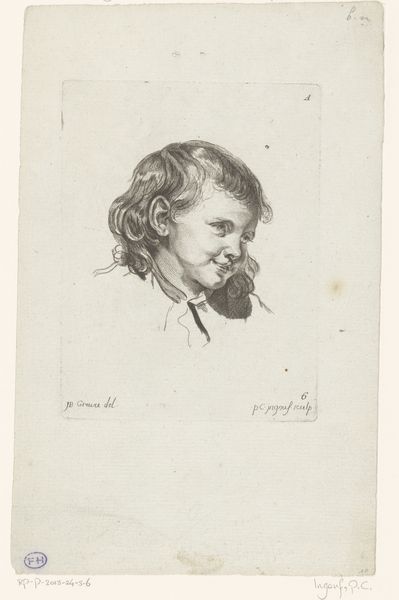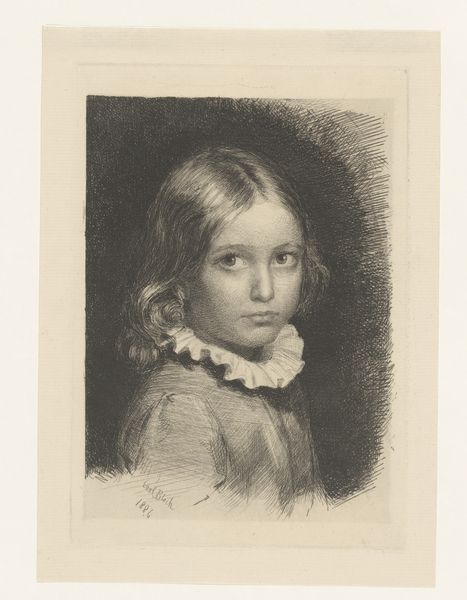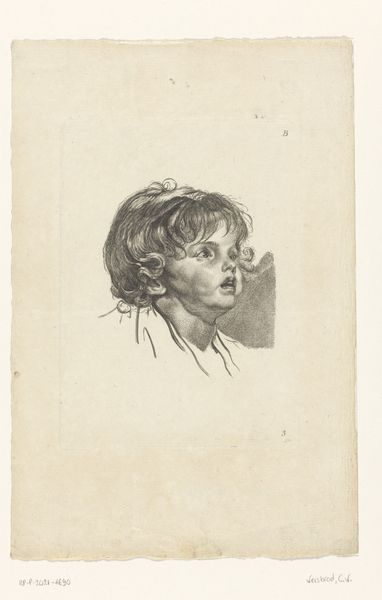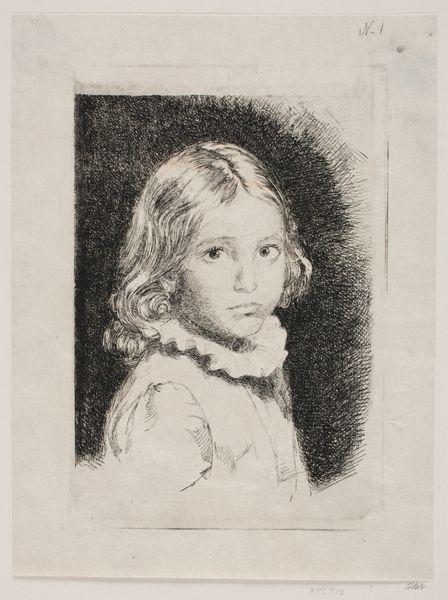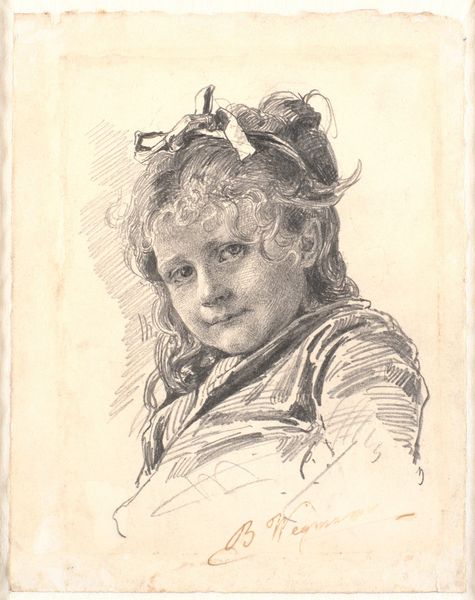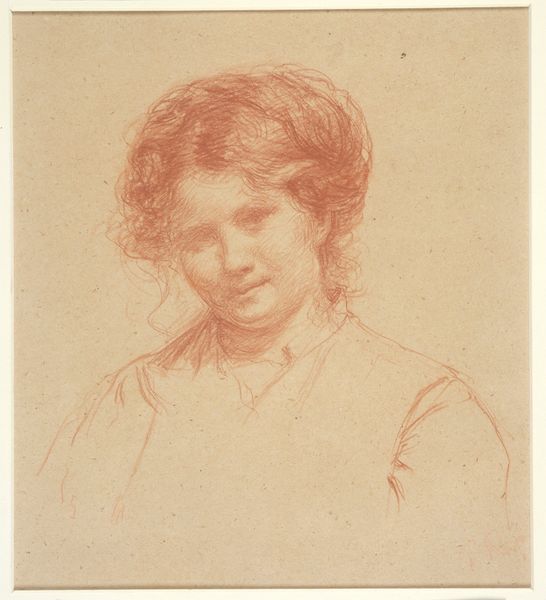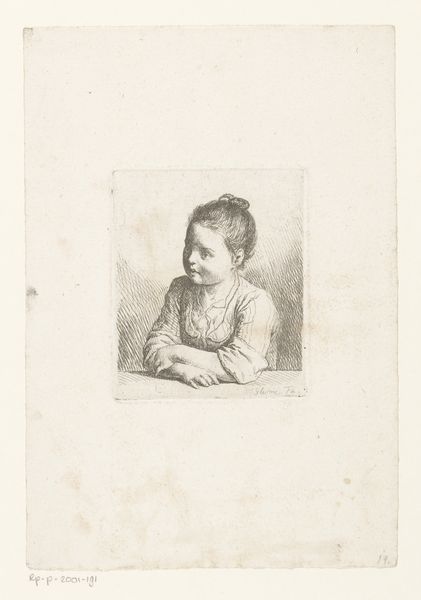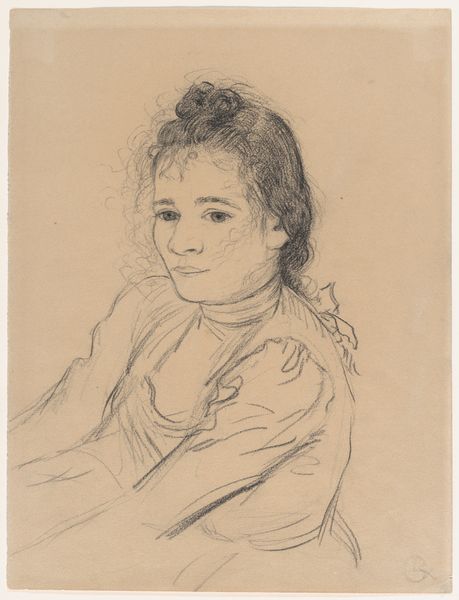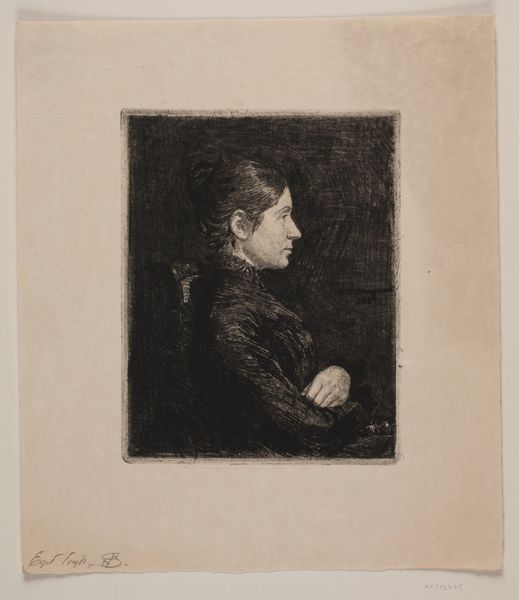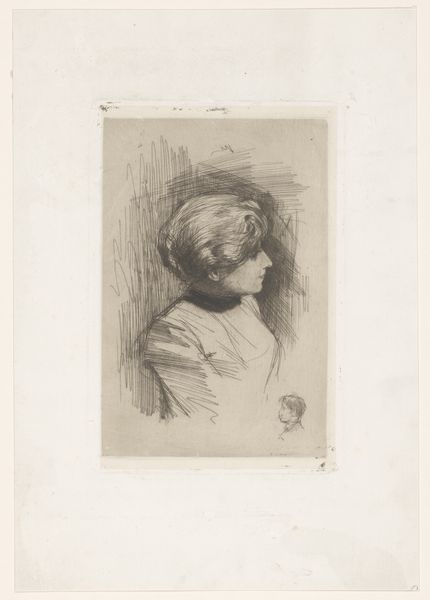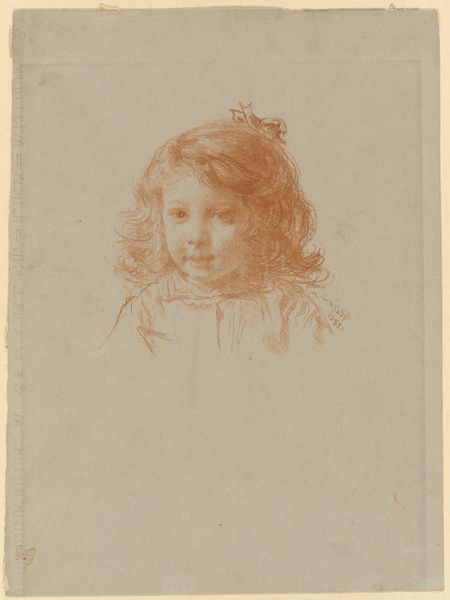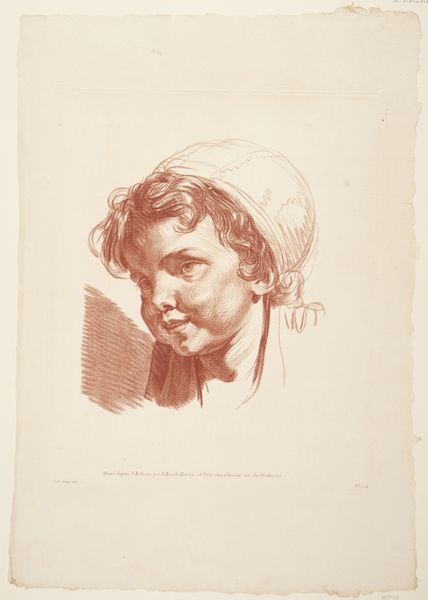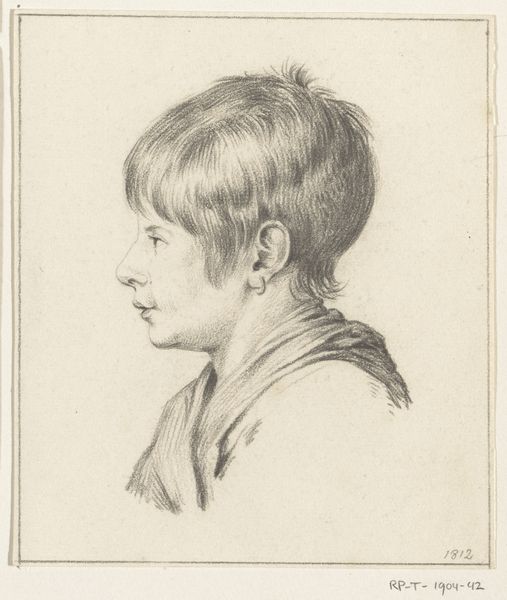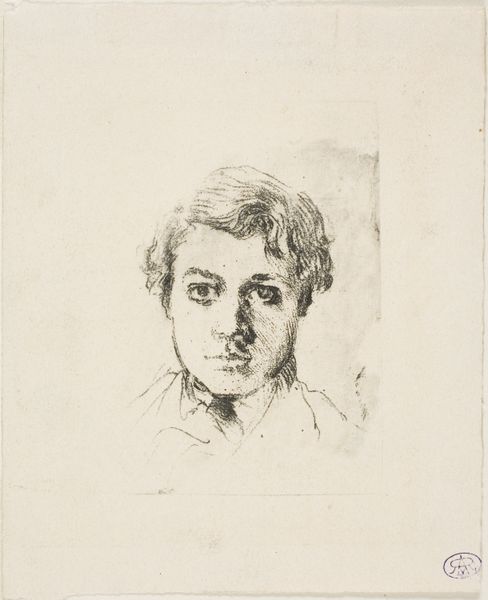
drawing, pencil
#
portrait
#
pencil drawn
#
drawing
#
neoclacissism
#
pencil sketch
#
caricature
#
child
#
pencil drawing
#
pencil
#
portrait drawing
Dimensions: height 138 mm, width 112 mm
Copyright: Rijks Museum: Open Domain
Editor: So, here we have "Head of a Child, Turned to the Right" by Pierre Charles Ingouf, circa 1766. It’s a pencil drawing. The child has this sly, almost mischievous smile. What's your take on it? Curator: Well, considering the Neoclassical period, we see a revival of interest in classical ideals, and the representation of children shifts. It is not merely a portrait but possibly a representation of innocence tinged with experience. How might social dynamics influence its creation? Editor: That’s interesting! So it’s less about pure representation and more about a commentary on childhood at the time? Did Neoclassical ideas have a hand in that too? Curator: Precisely! The rise of the bourgeoisie, along with evolving pedagogical philosophies that stressed a child's character formation, might demand these sentimental and moralizing portraits. This wasn't simply a neutral rendering, was it? How does the child's gaze contribute to this tension? Editor: I see what you mean, that subtle smile suddenly feels… loaded. More performative. It challenges my first impressions. It raises the question if children were just another instrument to show ideals. Curator: Precisely. Examining the image’s position within the broader socio-political framework opens doors to comprehend its possible intentions. By asking these crucial questions, we examine its enduring effect. Editor: Thank you, I will rethink the portraits of that era going forward!
Comments
No comments
Be the first to comment and join the conversation on the ultimate creative platform.
